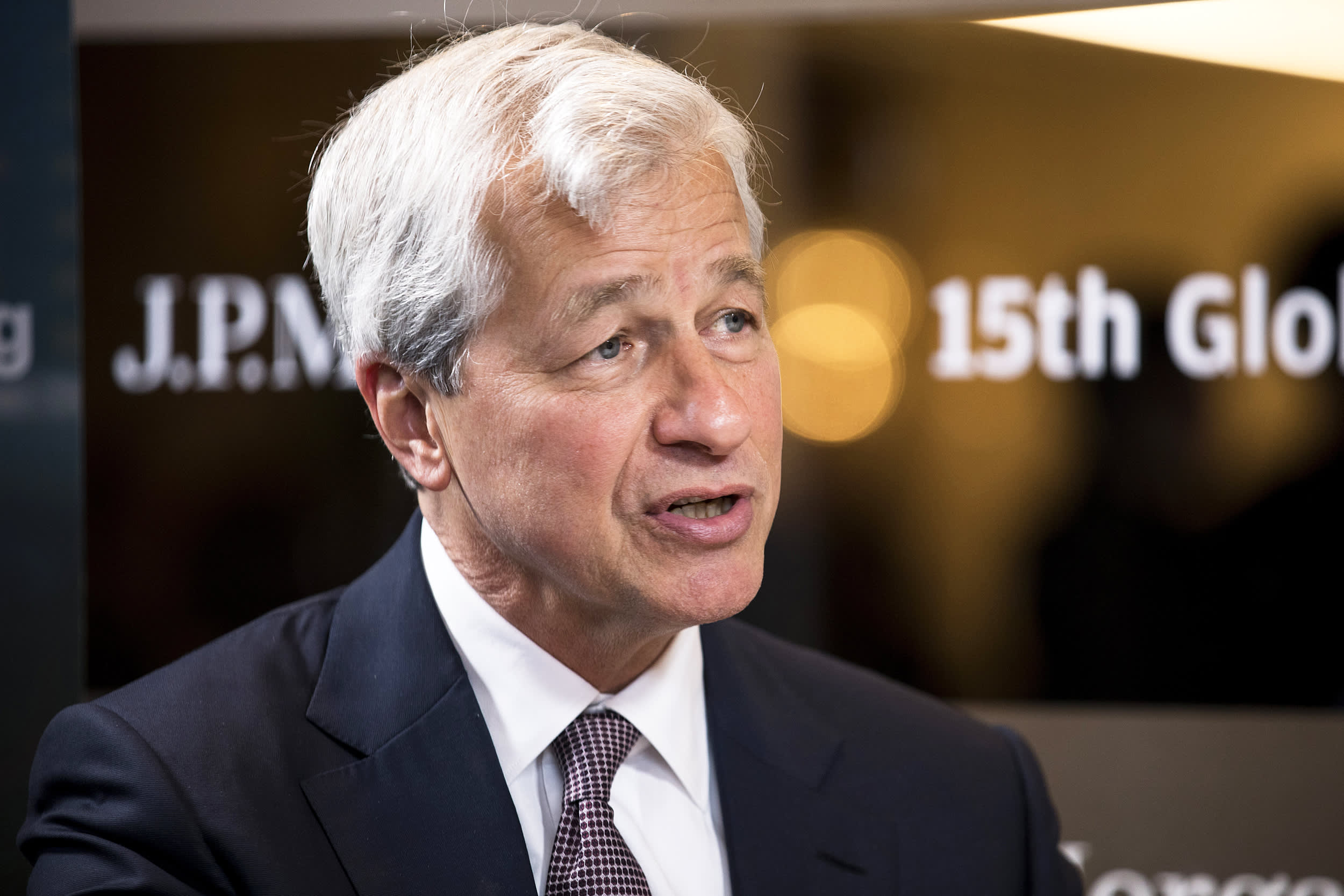J.P. Morgan Chase CEO Jamie Dimon should have defended his 2018 $31 million compensation during his recent "60 Minutes" interview, CNBC's Jim Cramer argued Monday.
Dimon, in an interview that aired Sunday on the CBS show, was asked if his pay package last year was too high. Dimon sharply responded that the board of directors sets his pay and he has "nothing to do with it."
"Why didn't Jamie say, 'Well one of the things I've done is triple the value of the stock, and so shareholders have benefited,'" Cramer said on "Squawk on the Street."
The "Mad Money" host continued that Dimon, who became CEO in late 2005, should have said, "Shareholders have been rewarded, and therefore the board has rewarded me. I have created a lot of wealth for people in the stock, or my team has."
"You're asking [Dimon] to say he's worth it?" CNBC's Carl Quintanilla asked Cramer.
"Yes, exactly right. I would've said that if I were him," Cramer said. "I would've said, 'Look I know you think that I may be overpaid but I do point out that others have shared in the wealth. I bought back stock at the right level; I got the earnings to be good.' He didn't make a good case for himself."
CBS' Lesley Stahl followed up Dimon's response that the board sets his pay by asking the bank executive why he doesn't return some of it.
"I could. Is that going to solve any of those problems?" responded Dimon, who said earlier in the interview that he believes wealth inequality in the U.S. is a "huge problem."
Dimon said he believes the way to reduce inequality is through a more equitable tax system, arguing that he would not have cut taxes on the rich, likely a reference to the 2017 Tax Cut and Jobs Act championed by President Donald Trump and Republicans on Capitol Hill.
While acknowledging executive compensation in some cases "is a little crazy," Cramer said it should be noted that Dimon sets a good example through his job performance. "There are people who make a lot of money who don't do well for shareholders, and there are ones who do well, and it should be factored in."
"Isn't the problem the executives who are paid a lot who don't make money for shareholders?" he concluded.
In the last 40 years, top corporate executives have seen their pay increase by more than 1,000%, nearly 100 times the rate of average workers, according to a recent study. A Gallup poll in 2018 found 47% of Americans favor government action to limit executive pay.
The Dimon-Stahl exchange was the latest flashpoint in a public debate over executive compensation and the broader debate over the ever-widening wealth gap in America. It's a hot-button issue in the Democratic presidential race, with most candidates looking for the rich to pay more and Sens. Elizabeth Warren and Bernie Sanders both pushing different versions of a wealth tax.
